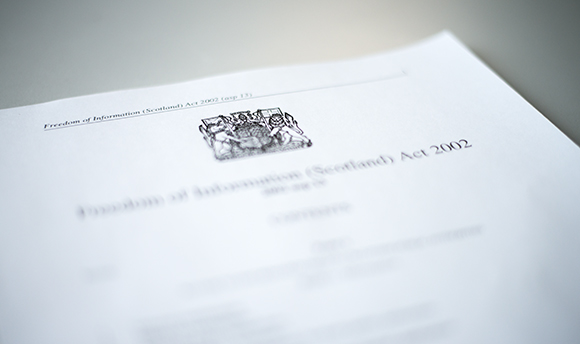BSc (Hons) Nursing
This programme is delivered by Metropolitan College, at various campuses across Greece. It is validated by Queen Margaret University. Through our rigorous quality assurance procedures we ensure that the programme has the same academic standards as the equivalent award delivered by QMU.
The Nursing Programme goals are to prepare highly educated and competent nurses ready to enter the workforce, providing high quality evidence informed person-centred nursing care. We aim to contribute to and disseminate the scholarly evidence-base in nursing and health care, foster excellence in teaching, provide service to the profession and other communities of interest and cooperate with health care, governmental, and related institutions to transfer knowledge in health sciences and health care.
Responding to the need to further develop and inform advancing practice, an approach has been taken across the nursing programme as part of a Person-centred Practice Framework, positioned in the School of Health Sciences at Queen Margaret University.
Programme details
Title : BSc (Hons) Nursing
SCQF Level : 10
Mode of delivery : face-to-face, full-time
Duration : 4 years
Language of delivery : Greek
Approval
First approved: May 2016
Most recent approval: May 2022
External accreditation or recognition: see below
Programme structure
Level One
|
Title |
Credits |
Semester |
|
Caring in Professional Contexts |
30 |
1 & 2 |
|
Introduction To Research and Enquiry in Nursing |
30 |
1 & 2 |
|
Skills and Practice 1: Essential Skills for Nursing |
30 |
1 & 2 |
|
Applied Clinical Anatomy and Physiology |
30 |
1 & 2 |
Level Two
|
Title |
Credits |
Semester |
|
Learning to Assess and Care: Enquiry Based Learning 1 |
30 |
1 |
|
Caring for Complex Healthcare Needs: Enquiry Based Learning 2 |
40 |
2 |
|
Skills & Practice 2: Learning to Care in Diverse Settings |
30 |
1 & 2 |
|
Political and Social Theory in Nursing Education |
20 |
1 & 2 |
Level Three
|
Title |
Credits |
Semester |
|
Recognition and Management of the Deteriorating Patient: Acute Care in a Variety of Settings |
30 |
1 |
|
Recovery Rehabilitation and Long-Term Issues |
30 |
2 |
|
Skills and Practice 3: Complex Care |
20 |
1 & 2 |
|
Evidence-Based Practice for Healthcare |
20 |
1 & 2 |
|
Interprofessional Education: Delivering Integrated Care |
20 |
1 & 2 |
Level Four
|
Title |
Credits |
Semester |
|
Leadership for Developing Professional Practice |
30 |
1 |
|
Dissertation: Research Proposal |
40 |
1 & 2 |
|
Skills and Practice 4: Transition to professional registration |
30 |
1 & 2 |
|
Health Policy and the Social Determinants of Health |
20 |
1 & 2 |
Key features
Placements :
|
Year |
Semester 1 |
Semester 2 |
|
1 |
Community placement- 6 weeks |
Residential care placement – 9 weeks |
|
2 |
Medical Placement or Surgical Placement or Community Placement -7 weeks starting in week 9 |
Medical Placement or Surgical Placement or Community Placement - 8 weeks starting in week 30 |
|
3 |
High dependency placement and one of the following: general/ specialist surgery, general/ specialist medicine, or community/ community interface care – 7 weeks - |
High dependency placement and one of the following: general/ specialist surgery, general/ specialist medicine, or community/ community interface care -8 weeks - |
|
4 |
No placement |
15-week placement including 12 weeks Placement aligned with content of clinical practice 4 module. |
Furthermore, it is anticipated that students will undertake a 1-week placement in the second semester of the third year that will give them the opportunity to volunteer at an organization of interest to them (other than the health sector). They will create their own learning outcomes that will align with the level outcomes and the module themes in third year.
Professional registration :
This programme does not currently lead to professional registration. Metropolitan College and Queen Margaret University are in discussions with the Greek government to clarify the law regarding professional rights for nurses and allow graduates to seek registration.
Admission criteria
Applicants, in order to be considered for admission should have a Greek Secondary School Diploma / ‘Apolyterion of Lykeio’ or equivalent (e.g., International Baccalaureate, European Baccalaureate, etc.) with a grade 10 or above. This requirement is in line with the Greek government’s minimum standard for access to higher education.
High school leaving certificates issued by vocational Lyceums, such as TEE or EPAL and foreign certificates which are equivalent to the Greek Lyceum certificate (e.g. International Baccalaureate, European Baccalaureate, etc.) are also accepted.
Non-native Greek speakers, may be admitted to the programme on demonstrating that:
- a) They hold a qualification recognised by QMU for admission to undergraduate programmes, as documented in the University Admissions Regulations.
- b) They hold a certificate of attainment in Greek at Level D
(http://www.greeklanguage.gr/greekLang/certification/index.html)


